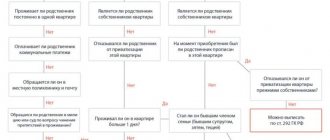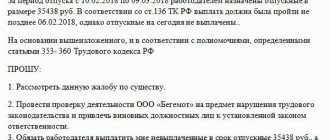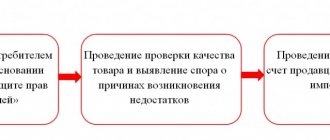The procedure for probation is written down in Article 73 of the Criminal Code of the Russian Federation. Conditionally convicted persons are given a probationary period in order to prove awareness of the crime committed. During this time, the offender does not serve the sentence established by the court.
For a convicted person on probation, restrictions are established. The court chooses which of the possible restrictions to determine for a specific person.
When can a conditional sentence be imposed?
Please note:
A convicted person has the right to be released from the imposed sentence for several reasons - due to illness, the expiration of the statute of limitations on the sentence, and so on. The list is closed and is specified in Art. 79-83 of the Criminal Code of the Russian Federation. Read more in the article here
A suspended conviction is the right of the court if, during the consideration of a criminal case, the judge forms the opinion that personal correction can occur without actually serving the sentence.
In this case, the court determines a probationary period, during which the convicted person must prove to society that he has reformed. As a rule, this means not committing new crimes or administrative offenses, as well as fulfilling the duties assigned by a court verdict.
Such a probationary period can be assigned only for specific types of criminal penalties:
- correctional work;
- restriction on military service;
- detention in a disciplinary military unit;
- imprisonment up to 8 years.
If the court assigns a different type or amount of punishment, then the use of a suspended sentence is impossible.
Clearance of a criminal record
Many people are concerned about whether a criminal record is removed after a suspended sentence. Article 86 of the Criminal Code regulates the automatic expungement of a criminal record after the expiration of the probationary period. An expunged criminal record excludes further restrictions for the citizen. What does it mean? Legally, the person is considered not to have a criminal record, but information about the punishment will remain in the database.
With a suspended sentence, early expungement of a criminal record is possible. The guilty person must atone for his guilt, prove his correction and fulfill all obligations prescribed by the court. The possibility of early revocation of a conviction is usually considered after half the probation period has expired.
The conditions for early withdrawal are as follows:
- impeccable behavior of the culprit;
- absence of misconduct, administrative violations, conflicts after sentencing;
- positive reference from work or study;
- fulfillment of obligations imposed by the court;
- compensation for damage;
- admission of guilt.
But a suspended sentence can not only be canceled early, but also extended. This happens if:
- the offender attempts to evade the duties prescribed by the court;
- the culprit commits another offense and is brought to administrative responsibility;
- the convicted person refuses to compensate for the damage caused.
The inspector who monitors the convicted person has the right to apply for an extension of the term. But the period can only be extended by one year.
A suspended conviction is used when it is more important to point out to the culprit the illegality of his actions, rather than to send him to prison. Staying in prison often negatively affects a person's character, and a suspended sentence provides the convicted person with a chance to improve and permanently refuse to re-offend.
Video: What is probation?
Restrictions for probationers
In order to check the behavior of the convicted person, the court assigns him a number of restrictions:
- Do not change your place of work or study without permission from the penitentiary authority;
- Do not move for permanent residence to another residential premises without the approval of the regulatory authority (travel abroad is also limited with a suspended sentence);
- Refuse from nightclubs, casinos and other public institutions determined by the court;
- Undergo treatment for alcohol and drug addiction;
- Find a job.
This list is not exhaustive; at its discretion, the court may impose other requirements on the convicted person.
Where, how and when to register and report for probation
The law defines the body that monitors the behavior of a suspended prisoner - this is the penal inspection , or briefly - the penal inspectorate .
From the moment the verdict is announced, the 10-day countdown begins for appealing it, after which the verdict comes into legal force. After this, the court was given three days to carry out the sentence.
That is, if a suspended sentence is imposed, a court employee within this period sends a copy of the sentence to the correctional institute in the area of residence of the convicted person for its execution. The day the sentence is received by the penal inspection is the date the convicted person is registered.
After the verdict is received, an inspector responsible for working with the probationer is appointed, who must call him to conduct a first conversation.
You must show up when called with identification documents. All other documents that must be carried with you must be indicated in the notice of appearance sent to the convicted person. The date of appearance is a maximum of 10 days from registration.
At your first meeting with the inspector:
- Documents are being checked.
- Fingerprinting is carried out.
- Other information is being revealed.
- The rights and obligations of the convicted person are explained.
- The frequency of appearance and its days are determined, if such an obligation is specified in the sentence.
At the end of the conversation, the conditionally convicted person is asked to sign an explanation of his rights and obligations, and is also given a memo. If the court has ordered treatment, a referral to the appropriate medical institution is issued.
During the probationary period, the inspector of the penal inspection periodically checks the fulfillment of the duties of the probationer. Checks are carried out at the place of residence, place of work or study, and in various public places. Once every 3 months they are held together with the police.
Who is not given a suspended sentence?
Even if the convicted person is given one of the punishments described above, he will not be able to qualify for a suspended sentence if:
- Guilty of a crime against the sexual integrity of children under 14 years of age;
- Involved in terrorist activities;
- Participated in hostage taking;
- Committed a felony while on previous probation or parole;
- He is a dangerous repeat offender (Article 18 of the Criminal Code).
○ What is a criminal record?
This concept is disclosed in the Criminal Code of the Russian Federation.
A person convicted of committing a crime is considered to have a criminal record from the day the court’s conviction enters into legal force until the criminal record is expunged or removed. A criminal record in accordance with this Code is taken into account in case of recidivism of crimes, imposition of punishment and entails other legal consequences in cases and in the manner established by federal laws (Clause 1 of Article 86 of the Criminal Code of the Russian Federation).
In accordance with this law, this is a temporary status of a citizen, which is assigned to him until the end of the probationary period appointed by the court. Despite the fact that many believe that a criminal record is a lifelong stigma, in fact, after expungement, it only affects public assessment.
What happens after the end of the probationary period?
Depending on the person’s behavior, his compliance with all restrictions, visits to the state. authorities where probationers are noted, the probationary period may end in different ways.
- Clearance of a criminal record. Perhaps, if by his behavior a person has proven that he is ready to lead a respectable lifestyle in the future. You can raise the issue of expunging a criminal record before the court after half the probation period has passed. By the way, we will tell you about the difference between expungement and expungement of a criminal record here
- Assignment of an additional probationary period. The court may extend the term of probation if during this time the person:
- did not fully fulfill the duties assigned to him;
- committed an administrative offense;
- did not compensate the victim for the damage in full.
- The term is extended by no more than 1 year, at the initiative of the inspector monitoring the behavior of the convicted person on probation.
- Referral to serve a sentence. If violations of the rules of probation are permanent, the court terminates the suspended sentence and sends the offender to serve the actual sentence. In this case, it does not matter how long the suspended sentence has passed.
- New conviction. If during a suspended sentence a convicted person commits a new crime, he is guaranteed to receive a punishment, to which the punishment under the suspended sentence is added in whole or in part.
What awaits the convicted person?
Having chosen a conditional correctional measure, a probationary period is assigned to the individual along with it.
A suspended sentence with a probationary period, what is it, what actions will the guilty person have to perform:
- visit an authorized institution in order to mark your presence in a certain territory. Where to register is usually determined by a court decision. In any case, upon appointment of a conviction, after about 2 weeks, the convict is notified by the inspector assigned to him about the time and place of the meeting, explains preferences and obligations, explains which department of the correctional inspection to come to and with what frequency;
- comply with assigned additional restrictions;
- try to prove your correction - get a job, get reinstated in your studies, and not commit offenses.
The probationary period varies and may be different depending on the expected actual sentence for the criminal act committed:
- From six months to 3 years (if this article provides for imprisonment for a period of up to 12 months or a milder punishment).
- Up to 5 years (if arrested for more than a year).
- For the entire time remaining until the end of military service (in the form of detention in a disciplinary unit).
The duration is fixed in court, taking into account all mitigating factors, the identity of the perpetrator, and the degree of damage caused. Time is calculated from the period when the court verdict comes into force. However, the period of time from the announcement of the imposed measure to the entry into force is counted towards the term of serving the sentence.
ATTENTION !!! Replacing an actual sentence with a suspended sentence does not prevent the imposition of additional sanctions. They are determined separately. However, their observance is precisely the result of correction.
An additional measure may include:
- prohibition of changing permanent place of residence, work, study;
- restrictions on visiting certain establishments (that can have a bad influence - nightclub, bar);
- obligation to undergo a treatment course (for those suffering from alcohol and drug addiction);
- responsibilities for employment and reinstatement in an educational institution.
The above list is not exhaustive and may be supplemented upon consideration by the court. Also, while being tested, it is allowed to add new measures and change the validity period. Again, what restrictions to apply will be decided by the judge at the request of the inspector (with good behavior, the regime as a whole may be relaxed).
Many individuals are interested in whether it is possible to travel abroad while on probation. As a rule, these are mutually exclusive actions, since the most common additional measure is a restriction on the permitted territory for movement (within a region - region, district).
Consequences of probation
In addition to the restrictions expressly specified in the sentence, the conditionally convicted person is limited in some other possibilities.
- They do not have the right to nominate themselves for legislative office or stand for election.
- They will not be able to get a job in law enforcement agencies or the courts, and large companies that have their own security department are reluctant to hire probationers.
- Convicts with a suspended sentence are not taken into the army - read more about this here https://lexconsult.online/7352-ugolovno-pravovye-posledstviya-sudimosti-vyezd-za-granitsu-sluzhba-v-armii-drugie
In conclusion, we emphasize that a suspended sentence is not a type of exemption from criminal liability; it acts rather as a special type of punishment. A person with a suspended sentence is convicted and his guilt in the crime committed has been fully proven by the court.
Ask questions in the comments to the article and get an expert answer
Replacement with real punishment
The court has the authority to revoke a suspended sentence and order the actual execution of the sentence if:
- systematic bringing to administrative responsibility related to violation of public order;
- facts of non-fulfillment of duties;
- if the convicted person escaped control.
A similar decision may be made if the court previously extended the probationary period due to the convict’s evasion of compensation for damage, and during the extended period he continues to do so.
In any case, when considering petitions, the penal inspectorate, in order to supplement duties, extend the probationary period, cancel the suspended sentence and bring the sentence to actual execution, determines the reasons for the violations.
To avoid negative consequences, they must be significant and recognized as respectful. For example, a valid reason may be illness, hospital stay, etc. The validity of such reasons must be confirmed not only with words, but also, if possible, with documents, for example, a doctor’s certificate, sick leave, etc.
Consequences of committing criminal offenses during probation
If a crime is committed through negligence or intentionally of minor or moderate gravity, the court has the right to decide whether the conviction under the first sentence is suspended in a new sentence. There may be options:
- the suspended sentence remains so and the sentence is carried out independently;
- the suspended sentence is revoked, and part or all of the punishment for the first sentence is added to the punishment for the second crime.
If an intentional grave or especially grave crime is committed, the conditional sentence without options must be revoked, and the punishment must be imposed based on the totality of sentences by adding up the sentences on them in whole or in part.
Impact results
It may seem to the sentenced individual that his preferences and freedoms have not undergone any transformations, but this is far from the case. As before, a person has the right to receive an education, work, and, moreover, serve in the Armed Forces of the Russian Federation.
However, the seemingly free position and the sensation that seems to carry no consequences are false. Because the:
- According to Art. 32 of the Constitution, persons who have served a suspended or real sentence do not have the right to be elected to legislative bodies at any level.
- It is prohibited to travel outside the territory of the Russian Federation while the person is on probation or the punishment has not been lifted.
- Formal disadvantages during employment. It will no longer be possible to serve in the judicial system and law enforcement agencies, in a number of government agencies. It will also be impossible to get a job in those institutions where personal behavior and reputation play a decisive role (educational organizations - schools, kindergartens, additional clubs). Moreover, many large companies that value their image also do not accept previously convicted people, although this happens behind the scenes.
ATTENTION !!! Thus, while being one of the mildest and most humane measures applied to an attacker for criminal behavior, a suspended sentence is still considered a form of conviction. Future reputational consequences are identical to the actual term of service.
Many academic analysts talk about the ineffectiveness of awarding a suspended sentence and, among their arguments, cite the following points:
- lack of inspectors capable of properly exercising control (one employee may have up to 10 or even more violators at a site);
- the difficulty of control with the development of the Internet and mobile communications (for example, when establishing restrictions on communication with certain entities);
- current restrictive measures for a person may infringe on the interests of his family (for example, installing video surveillance in an apartment);
- many subsequently do not stop on their criminal path (however, it is worth arguing here that not everyone. For those who really want to improve, such a measure is suitable and helps).
A suspended sentence is still a criminal record and the consequences cannot be called positive for an individual’s reputation.
If a crime is committed during the probation period
Question: Is probation always revoked if a repeat criminal offense is committed?
Almost always, but there are exceptions:
1. when committing a repeated crime of a small or medium category. In such situations, the court has the right to either leave the probationary period or cancel it. It all depends on the specific circumstances.
Example No. 13 . Makismov E.N. convicted of theft, during the probationary period he again committed a crime - this time robbery, that is, an act of greater social danger. It follows from this that the lenient punishment under the first sentence did not benefit the convicted person, the goal of correction was not achieved. The court came to the conclusion that the probationary period was canceled and the penalties were added, Maksimov E.N. went to the colony.
Example No. 14 . Varina E.G. committed fraud, she was given a suspended sentence, but she again broke the law and committed a similar crime. In the trial in the new case, it was established that she fully compensated for the harm to the victim, apologized, and repented of what she had done. She was kept on probation, but given additional responsibilities - to find a job and not to visit bars and cafes.
2. when committing a careless crime. This category of cases presupposes the absence of the direct intent of the perpetrator, and this is always a basis for leniency. Careless crimes often involve violations in the field of traffic, when not everything always depends on the driver. Courts often treat such situations with understanding and, if a careless act is committed during the probationary period, do not make a decision to cancel.
3. when committing a serious (up to 10 years of imprisonment under a sanction), minor or moderate crime by a minor. As we have repeatedly drawn attention to, juvenile delinquents are always treated with “preferential” treatment, because these are not yet fully formed individuals who are subject to the influence of the external environment. Even when a teenager commits a serious act during the probationary period, judges do not always, but in some cases, decide to establish a new, longer suspended sentence.
Example No. 15 . 17-year-old Nikanov A.V. committed a small theft, after which, being on probation, he succumbed to the influence of bad company and became addicted to drugs, with which he was detained by the police. The court took into account the fact that by the time the case was considered, Nikanov A.V. I resumed my college course, broke all ties with my previous circle of contacts (which was confirmed by a PDN employee), that is, I took the path of correction. The court appointed Nikanova A.V. another suspended sentence.
The decision to revoke or maintain a suspended sentence is always made by the court based on the results of the consideration of the case for a new crime. In such cases, the inspectorate no longer has the authority to make a representation.
Please note: if a new crime is committed during the probation period, there will be no relapse in the actions of the offender, even if the suspended sentence was not retained. Recidivism occurs only if a person breaks the law again after being released from a colony (of any type).
Where to put a mark during a probationary sentence
The systematicity of visiting a convicted person must be determined by the legal proceedings. In other situations, the order is determined by the UII.
The person is notified of the date and time of attendance upon registration. Notification is sent by mail. The systematicity in each case may be different.
It depends on how far the person lives from the inspection, and whether he has the opportunity to come more often.
Please note! You must come for the first time no later than 10 days from the date of registration.
What violations of the law are conditionally punishable?
Article 73 of the Criminal Code of the Russian Federation provides for the imposition of a suspended sentence if the judge considers this sufficient, and to correct the convicted person, he does not need to be imprisoned or sentenced to work.
The court takes into account:
- nature and extent of the incident
- danger of actions for others
- under what circumstances the crime occurred
- characteristics of the criminal
- reasons that influenced the mitigation or aggravation of guilt
- whether there was, is or is not a criminal record
- how the defendant behaved before the investigation
- where and how I worked or studied based on reviews
- marital status of the perpetrator, are there any children?
How dangerous the guilty person is to society is determined by observing him after the offense; a mitigation of the sentence is given under the following conditions:
- full repentance for what he did
- eliminating harm
- compensation for damage
- agreement in one's guilt
The judicial panel has the right to assign additional duties to a conditionally convicted person, upon deciding that such a measure will help him quickly take the righteous path.
Inspectors competent in these cases constantly monitor the sentenced person to see how accurately he complies with court decisions. It depends on the reports and marks in the journals of the criminal correctional inspection how many years a suspended conviction is lifted in Russia and, of course, on the behavior of the convicted person himself.
Disadvantages of a suspended conviction
Of course, a suspended sentence is a more generous punishment than imprisonment, but it still has its drawbacks. In addition to fulfilling the individual conditions imposed by the court during the trial, there are also general provisions that the offender must comply with .
- The convicted person will be under constant surveillance by the state. employees . A criminal serving his sentence needs to clearly know where to report during a suspended sentence, because regularly ignoring this point will result in the cancellation of the suspended sentence. Therefore, a convicted person will not be able to simply change his place of residence, place of work or study, in any case, without notifying law enforcement agencies.
- Traveling abroad , therefore, also becomes impossible.
- The offender is also prohibited from visiting public places , such as bars. The exact list of “forbidden” establishments is discussed separately.
- The right to participate in elections is revoked.
- The convicted person must be employed . At the same time, he is prohibited from working in various government and law enforcement agencies.
- An obligatory point is getting rid of all sorts of bad habits , such as alcohol and drug addiction, and possibly some sexually transmitted diseases. If the convicted person refuses or is unable to fulfill this order himself, but his addiction served to commit a crime, then the court may resort to compulsory treatment.
- Naturally, any crime committed during a suspended sentence will inevitably lead to its revocation .
These are the main points that are mandatory, but the court can also assign additional duties, depending on the circumstances of the crime committed.
You may also be interested in:
How to appeal a court verdict in a criminal case.
On what grounds can one obtain exemption from criminal liability?
If we compare this with the terrible conditions that domestic prisons have, then the listed obligations no longer seem so terrible. In the end, the convict can remain with his family and live in comfort, albeit without any special frills.
Under what articles?
Question: For what crimes can you limit yourself to probation and not actually serve a sentence?
As a general rule, a conditional sentence can take place for any act if the imposed punishment is no more than 8 years of imprisonment, and it does not matter whether the crime is minor or especially serious.
Based on judicial practice, we can conclude that this is possible in the following situations:
1. for crimes of minor or medium gravity, committed for the first time. For example, a person is convicted of illegal possession of drugs or theft in the amount of several thousand rubles.
Example No. 4 . Kozlov D.V. committed theft from a hypermarket, he stole 2 cans of coffee and bread. The store representative showed integrity and, even with full compensation for the damage, did not want to end the matter with reconciliation, but did not insist on severe punishment. Kozlov had never been prosecuted before and offered sincere apologies to the victim. Due to the presence of mitigating circumstances - confession and compensation for harm to the injured party, Kozlov was sentenced to a suspended sentence.
Can a court determine actual imprisonment for committing a minor or moderate crime? Yes, when such acts have not been committed for the first time or there are fairly compelling reasons to send a person to a colony - for example, if he has no place of residence and leads a criminal lifestyle.
2. in relation to women and minors in the presence of mitigating circumstances. Can a minor be given a suspended sentence? This happens quite often. Women and teenagers are a separate category, which is always treated with a little more leniency than men. If they are found guilty, have positive characteristics and other mitigating circumstances, the court often determines a probationary period for them even in serious and sometimes especially serious criminal cases, and in some cases even in case of relapse.
Example No. 5 . 17-year-old Egorov E.G. was prosecuted under Article 161 Part 2 of the Criminal Code of the Russian Federation - robbery by a group of persons, the sanction of the article provides for up to 7 years of imprisonment. Taking into account certificates, positive characteristics and achievements in sports, as well as due to repentance and cooperation with the investigation, Egorov received 2 years of imprisonment with a probationary period of 2 years.
3. in relation to the rest of those convicted of grave and especially grave crimes in the presence of exceptional circumstances related to the role of the perpetrator, in accordance with the rules of Art. 64 of the Criminal Code of the Russian Federation. This norm contains exemplary provisions when it is possible to impose a sentence below the lower limit of the sanction of the article, and in such rare cases the courts usually impose a suspended sentence.
Example No. 6 . Makarov A.N. was accused of committing a particularly serious crime under Part 4 of Art. 111 of the Criminal Code of the Russian Federation - the sanction of the article provides for from 5 to 15 years. From the circumstances of the case, it followed that Makarov stood up for the girl, who was literally dragged by her hair into the car by two healthy guys. Without thinking twice, the physically prepared Makarov knocked out both hooligans, one of whom fell and later died in the hospital. The court took into account the unlawful behavior of the victims, the defendant’s intentions to help a stranger avoid violence, as well as Makarov’s actions after the fight - he tried to help the victims and called the police and an ambulance. The court found Makarov guilty of committing a crime, taking into account Art. 64 of the Criminal Code of the Russian Federation, and the punishment was imposed in the form of 4 years of suspended imprisonment.
Such an example is rarely encountered in judicial practice. Still, basically, Art. 73 of the Criminal Code of the Russian Federation is applied to people who have stumbled for the first time and the danger of their actions is not too great.
In addition, the criminal law provides for a direct prohibition of conditional punishment for the following crimes :
- acts against the sexual integrity of minors under 14 years of age, that is, rape or other acts of a sexual nature against children (Articles 131 - 135 of the Criminal Code of the Russian Federation). Needless to say, there is no justification for crimes of this kind; there can be no leniency;
- involving a minor in prostitution;
- production of pornographic products with photos or videos depicting minors;
- terrorist activity or facilitating it by any means - correspondence, propaganda, participation in meetings, recruitment, etc.;
- hostage taking, and it does not matter whether such actions resulted in the death of the victim - in any case, the accused under Art. 206 of the Criminal Code of the Russian Federation it is impossible to assign a suspended sentence;
- provocation of war, attack on foreigners or on premises or buildings that enjoy international protection (for example, consulates, embassies);
- if there are signs of a dangerous or especially dangerous relapse in the actions. This means that persons who have served their sentence and have an outstanding conviction for committing a grave or especially grave crime and who again commit a crime of the same category will no longer receive a suspended sentence;
- if a probationary period has already been assigned, during which the person commits a new crime of a grave nature;
- if the convicted person served his sentence in a prison, was released on parole, but again violated the law during the remainder of the unserved term.
In addition to the above list, judicial practice established over years and decades allows us to conclude that a suspended sentence is not assigned in the following cases:
- when found guilty of murder.
- in the absence of a place of residence or registration on the territory of the Russian Federation, in such situations the execution of a suspended sentence becomes impossible.
- when committing corruption crimes related to the theft of extremely large sums of budget money.








